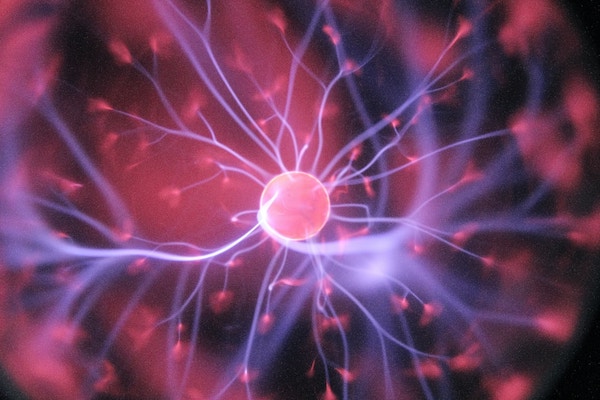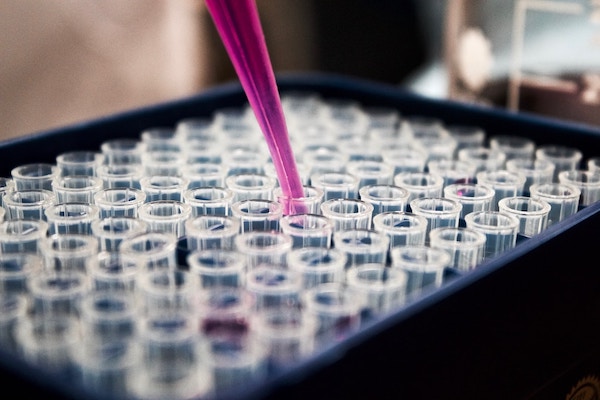The science of living organisms is fascinating and largely dependent on the sequence of chemical reactions and their consequences on our health. One vital reaction in our body involves a coenzyme called nicotinamide adenine dinucleotide (NAD). It plays a critical role in more than hundreds of metabolic processes. Recently, a growing body of evidence suggests its consideration as a potential therapeutic target to treat neurodegenerative disorders. In this article, we’ll delve deeper into this crucial compound and its potential to maintain the health of our nervous system. Keep reading to learn all about NAD.
The Underlying Significance of NAD in Biology
To initiate our exploration, it’s vital to comprehend NAD’s role in biology. Found in all living cells, NAD is a powerful coenzyme. Intriguingly, its function is often misunderstood or underestimated, despite its crucial involvement in cellular processes such as energy metabolism, DNA repair, and gene expression regulation. Like oil greases a machine’s wheels, NAD ensures smooth biological functioning.
Studies have substantiated its importance in biochemical reactions equivalent to a domino effect, where one event leads to another. To simplify it, imagine a tap in your house that controls the water flow. If you turn off the tap, the water flow halts, disrupting the following sequence of events, like the inability to do the dishes or take a bath. NAD acts like this tap, controlling biochemical reactions inside our bodies.
The cellular energy currency, ATP, is a product of a process where NAD plays a crucial role. The breakdown or synthesis of some biomacromolecules demanding energy exploits NAD’s part in this process. Without NAD’s contribution, such biological processes can stall, leading to repercussions on the cellular level and eventually impacting the organism’s health.
NAD’s Involvement in Brain Health
Moving another step towards understanding NAD’s role, we look at its relevance to brain health. Our brain is a complex organ, and its maintenance is paramount to survival. NAD has been identified as a great influencer in maintaining brain health.
At cellular levels, interactions between NAD, proteins, genes, and signaling molecules contribute to brain health. Neurotransmitters serve as chemical messengers in the brain, enabling effective communication between nerve cells. NAD helps regulate neurotransmitters such as serotonin, dopamine, and acetylcholine, which are fundamental for learning, memory, mood regulation, and cognitive functions.
In addition to neurotransmitter synthesis, NAD also plays a crucial role in maintaining the health of brain cells. It contributes to activating proteins involved in DNA repair, which is essential for preventing cellular damage and promoting overall brain cell wellness. Furthermore, NAD regulates gene expression, influencing the production of proteins necessary for proper brain function.
By understanding the intricate connections between NAD, proteins, genes, and signaling molecules, researchers and medical professionals are uncovering new ways to promote brain health and combat cognitive decline. Through the optimization of NAD levels and their interactions with vital components in the brain, it may be possible to enhance cognitive functions, prevent neurodegenerative disorders, and contribute to overall brain vitality and longevity.
Moreover, NAD directly or indirectly influences processes such as DNA repair, oxidative stress regulation, and inflammation. DNA damage or accumulation of oxidants could potentially harm the cells, promoting a state of stress or inflammation.
Various factors, such as radiation, chemicals, and other environmental agents, constantly threaten the integrity of our DNA. DNA repair mechanisms are responsible for identifying and fixing these damages. NAD serves as an essential coenzyme in these repair processes, facilitating the efficient restoration of damaged DNA.
Oxidative stress, caused by an imbalance between the production of reactive oxygen species (ROS) and our body’s antioxidant defense system, can harm brain cells. NAD acts as a crucial component of the antioxidant defense system by participating in enzymatic reactions that neutralize ROS and restore balance.
Inflammation is a complex immune response that occurs in our body to counteract harmful stimuli and initiate healing. NAD helps regulate the inflammatory response by influencing the activity of certain enzymes and signaling molecules. By influencing these processes, NAD acts as a caretaker, ensuring our brain cells’ proper maintenance and protection.
Without sufficient levels of NAD, the DNA repair mechanisms may not function optimally, leading to a higher risk of mutations and genetic abnormalities.
NAD and Its Protective Role Against Neurodegenerative Disorders

NAD not only helps in maintenance, but it also unfolds as a mighty guard against neurodegenerative disorders. Neurologically, NAD has displayed promising results in conditions like Alzheimer’s Disease (AD), Parkinson’s Disease (PD), and even stroke.
In the case of AD, studies involving mouse models demonstrated an inverse relationship between NAD levels and AD progression. Boosting NAD levels delayed AD progression, suggesting an exciting potential role of NAD supplementation as a therapeutic approach against this disorder.
Similarly, PD subjects exhibited reduced NAD levels in their brain. Experimental approaches for repleting NAD concentrations portrayed hopeful outcomes, resulting in decreased PD-associated neuronal loss. Even for stroke, where a sudden loss of blood supply to the brain occurs, timely administration of NAD proved beneficial in minimizing cell death and promoting recovery. These findings illustrate NAD’s potential to combat neurodegenerative conditions and pave the way for further exploration.
NAD Supplementation: A Ray of Hope
Coming to the exciting part is the potential of NAD supplementation. With the understanding of NAD’s role in maintaining brain health and fighting neurodegenerative disorders, could supplementing NAD be a game-changer?
The primary route of NAD intake in a normal diet is through NAD precursors, like nicotinic acid or nicotinamide. Certain foods can provide these NAD forerunners. However, one can’t ignore the potential of NAD-boosting supplements.
Several NAD precursors have burgeoned as promising supplements, with nicotinamide riboside and nicotinamide mononucleotide being the forerunners. Pilot studies of these supplements have revealed promising results, although long-term effects are still under deep investigation. However, it’s important always to consult your healthcare provider before taking any supplements.
Understanding the Side Effects of NAD Supplementation
A pertinent question that comes into play when considering NAD supplementation is its side effects. Like any medication or supplement, it’s crucial to understand NAD supplementation’s potential adverse effects.
Studies have reported few side effects related to NAD supplementation. Some mild to moderate symptoms, such as nausea, fatigue, diarrhea, abdominal discomfort, and headaches, have been reported. However, these side effects often resolve with time and do not pose significant health issues.
As the scientific community strongly advocates for more research in understanding NAD’s impact on neurodegenerative disorders, more light needs to be shed on its supplementation side effects. Further scientific studies are needed to understand better the long-term effects of NAD supplementation on the human body.
The Future of NAD in Neurodegenerative Disorders Treatment

Finally, we see ourselves looking at a near future where NAD could potentially impact neurodegenerative disorders’ treatment. The advanced understanding of NAD’s role and the potential benefits of its supplementation offers a fascinating premise for combating such disorders.
The scientific world is still scratching the surface of its potential. Each new study brings us closer to unraveling more facets of this versatile molecule. The journey is not over yet and is far from being completed. But what we have uncovered so far sends a wave of hope, promising a better understanding and management for seemingly untreatable neurodegenerative disorders.
These ongoing research efforts aim to weave a future where diagnoses of neurodegenerative disorders won’t necessarily mean a life sentence. Whether NAD supplementation may inaugurate a new era in the world of neurodegenerative disease treatment, only time will tell.
Our understanding of NAD and its role in neurodegenerative disorders has certainly advanced. The emerging evidence demonstrating its therapeutic potential paves the way for further investigation and promising possibilities for tackling such tricky disorders.
Read More:

